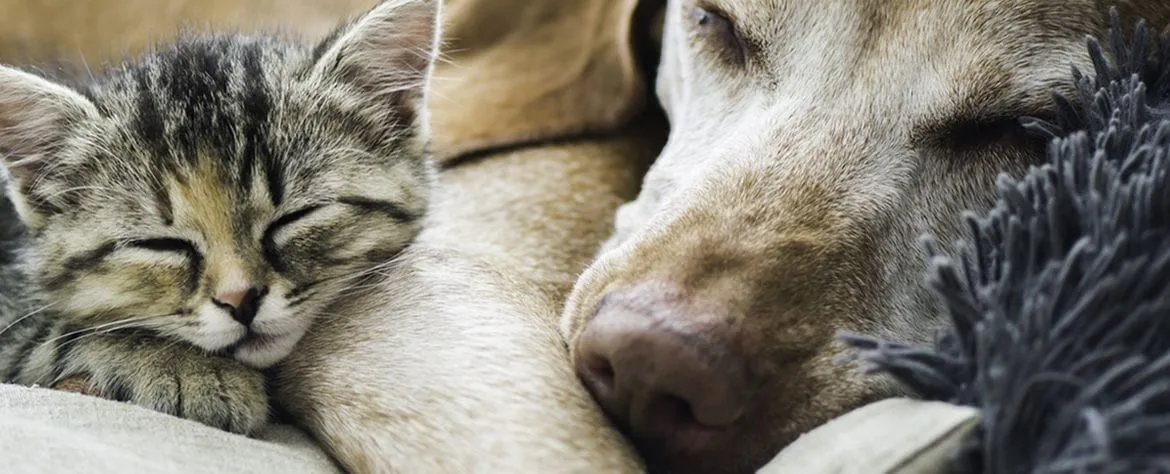By: Dr. Cherie Cortez
There has been, to understate it, a bit of a debate about whether parents should be vaccinating their children against highly communicable diseases, which until recently, were all but eradicated from this country although recent outbreaks would seem to argue that these vaccines, while not perfect, seem to have been doing a fairly respectable job of protecting us over the years from things such as measles, mumps, and rubella, to name a few. I know what you’re thinking…wait a minute, this is a veterinary blog, right? Well, given the level of debate about such a potentially life-threatening topic, I choose, as my first blog topic, vaccinations in veterinary medicine and why you should continue to vaccinate your animal children right along with your human ones.
So, let’s start with the basics; what is a vaccine? At its most basic, a vaccine’s one and only job is to provide a way for the body to come into contact with a non-contagious version of a contagious disease without actually causing the actual disease itself so that if, in the future, you do come into contact with that disease, your body will already have had some experience with it and can mount a proper defense with less of a delay and hopefully, protection, so that you do not have to suffer the symptoms of that particular disease.
OK, so maybe you already know all of that…but here’s the thing; it’s no secret that the vaccination process can cause adverse reactions in animals: it can cause anything from being sleepy and not eating well for 24-48 hours to facial swelling and minor hives to a full-blown anaphylactic reaction. Wait, wasn't I trying to convince you that vaccines are a good thing? Well, if you've ever seen an 8 week-old puppy with parvoviral enteritis, yes that Parvo, it’s not that hard a decision. The hard truth is that even in the very best circumstances; approximately 15 percent of infected dogs still die from parvovirus, even if they've been given the very best care possible. Try treating at home and the statistics drop to about 50-50 odds that that poor puppy will survive! Potentially even worse is distemper, which is a virus that starts out with respiratory signs like coughing and heavy nasal discharge and can end in death or, if they survive, tend to have life-long neurologic problems like chronic twitching.
What’s the point, right? Well, most everything in medicine, human or veterinary, comes down to a series of risk-benefit analysis: antibiotics also have the power to cause potentially life-threatening allergic reactions; anesthesia that we use for every surgery from cleaning teeth to spaying the cat involves an obvious need for the patient to be asleep, but we try to minimize the risk and we do it anyway, because we know that those procedures are in the best interests of our pets. The potential diseases that can occur if these things aren't done far outweigh the small statistical chances of having a bad reaction to that antibiotic or anesthesia. Every medication used to treat anything from arthritis to cancer, whether man-made or found in nature, has the potential for side effects and you and your veterinarian should discuss these potential side effects and decide on that risk-reward and make adjustments based upon the individual animal and their level of health at that time.
Based on that information, we need to decide what vaccines are appropriate for each individual and of course, the young animals are the most immune-compromised and so need vaccinations to protect them both at an early age and later, when they may be exposed to these diseases. With that in mind, we've tried to categorize vaccinations into “core” and “lifestyle” vaccines, meaning that some are considered necessary for all, while some depend on the current lifestyle of the individual pet. Rabies is an example of a core vaccine, while Bordatella, or kennel cough, vaccine is only administered if your dog regularly comes into contact with other dogs not in your family. In talking frankly with your veterinarian, you can determine the most efficient and safest protocol that protects your cat or dog without subjecting him or her to more than absolutely necessary.
The reason we use a series of vaccinations is primarily because studies show the immune system actually reacts better and for a longer time each time it comes into contact with an infectious agent. The goal is to help the immune system prepare itself. Each time we give that vaccine, the immune system’s response is better and quicker than the previous time. Think of it sort of like a fire drill…the immune system is going through the motions of responding to some type of infection because we trick it into believing that the body is actually sick when, in it’s been exposed to a far less harmful version; and that is key, there has never been anyone from the producer of still currently utilized smallpox vaccine, Edward Jenner, to the doctors of today, who has made the claim that there is no risk.
Take the smallpox vaccine: Jenner realized that milk maids (the gals who milked the cows), didn't appear to be susceptible to small pox and the horrible scarring of the skin it caused. This was, as he was genius enough to deduce, because their exposure to the much less virulent cow pox protected them from the horrible results of contracting smallpox, which was officially considered eradicated in 1979 due to that same vaccination!
So, to wrap this up; people can disagree on lots of things, but not one person can argue that people no longer get smallpox or even polio. You can be an integral part of your pet’s health care team, not the least of which includes making sure you know which vaccines are being given to your pet and why and as long as you understand the reasons, vaccinating your pet hopefully won’t be as frightening as the prospect of having to decide if you can afford the expensive and not nearly as consistently effective, post-exposure treatment.
Please contact us at Phoenix Veterinary Center if you have questions or concerns.



